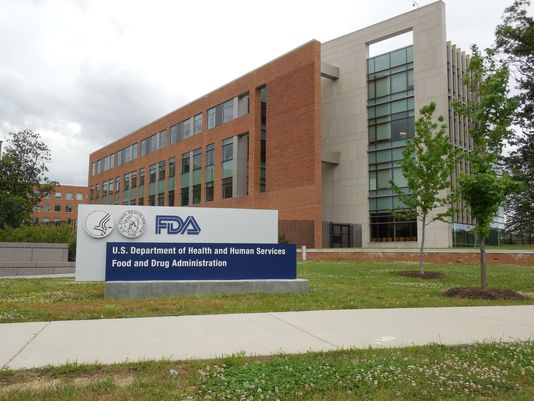FDA Issues Safety Warning!

Well, finally, the FDA is requiring warning labels on prescription testosterone products for MEN but what about warning labels for women? Yesterday the FDA updated its Drug Safety Communication “Evaluating Risk of Stroke, Heart Attack, and Death with FDA-Approved Testosterone Products issued on January 31, 2014.”
Since that report came out, opponents have argued that testosterone therapy is safe. They did that for years with tobacco, too, while doctors advertised their health benefits.
However, the facts will reveal that not only is exogenous testosterone therapy risky, first of all because it shuts down your own natural testosterone, it is also an addictive/dependent drug.
My claim that testosterone therapy is addictive comes from a number of studies, especially those of Gen Kanayama, et al. whose in-depth research publication, “Anabolic-Androgenic Steroid Dependence: An Emerging Disorder” shows that “30% of AAS users appear to develop a dependence syndrome, characterized by chronic AAS use despite adverse effects on physical, psychosocial, or occupational functioning.
Testosterone is an exogenous Anabolic-Androgenic Steroid hormone.
They report that “AAS dependence shares many features with classical drug dependence. For example, hamsters will self-administer AAS, even to the point of death, and both humans and animals exhibit a well-documented AAS withdrawal syndrome, mediated by neuroendocrine and cortical neurotransmitter systems.”
The team concluded that “AAS dependence is a valid diagnostic entity, and likely a growing public health problem.”
The FDA states that approval is “only for men who have low testosterone levels CAUSED BY CERTAIN MEDICAL CONDITIONS. Those conditions are: low testosterone levels due to disorders of the testicles, pituitary gland, or brain that cause a condition called hypogonadism.
“The benefit and safety of these medications have not been established for the treatment of low testosterone levels due to aging, even if a man’s symptoms seem related to low testosterone,” the FDA warns.
But so far, the FDA has only looked at testosterone issues for MEN.
I have been advocating on my website for accountability and now it seems progress is being made. But not enough. What the FDA is not warning these Men about are the behavioral issues that come from taking an anabolic androgenic steroid hormone such as testosterone.
However, FDA states, “We are requiring that the manufacturers of all approved prescription testosterone products change their labeling to clarify the approved uses of these medications.
“We are also requiring these manufacturers to add information to the labeling about a possible increased risk of heart attacks and strokes in patients taking testosterone.”
And in my opinion, most important: “Health care professionals should prescribe testosterone therapy only for men with low testosterone levels caused by certain medical conditions and confirmed by laboratory tests.”
So now, today, there is more evidence that testosterone therapy is being abused.
It is notable that FDA includes in this warning that “However, FDA has become aware that testosterone is being used extensively in attempts to relieve symptoms in men who have low testosterone for no apparent reason other than aging.”
I have been shouting out for accountability and I hope others besides the FDA have heard. “Health care professionals should make patients aware of this possible risk when deciding whether to start or continue a patient on testosterone therapy.”
That, ladies and gentlemen, is how my horror story began. I trusted the doctors.
The FDA states, “We are also requiring manufacturers of approved testosterone products to conduct a well-designed clinical trial to more clearly address the question of whether an increased risk of heart attack or stroke exists among users of these products.”
Now, my concern is that there are no studies or FDA reports warning WOMEN that they are also risking their lives with various hormone replacement therapies, especially the increasing use of prescription testosterone.
So, women, if you have concerns about getting therapy, are on it and wondering if you should stay on it, or if you are having problems. We need to hear them. Remember, there are no “ethical” testing studies for this type of drug. You choose it at your own risk.
The FDA urges “health care professionals and patients to report side effects involving testosterone products to the FDA MedWatch program, using the information in the “Contact FDA” box at the bottom of the page.”
Facts about testosterone
-
FDA has approved testosterone products to replace testosterone in men who have low testosterone levels associated with certain medical conditions. Examples of these conditions include:
-
o Failure of the testicles to produce testosterone because of genetic problems or because of damage from chemotherapy
-
o Problems with the pituitary gland or part of the brain called the hypothalamus that control the production of testosterone by the testicles
-
FDA-approved testosterone formulations include gels, solution, skin patch, intramuscular injection, pellets implanted under the skin, and a buccal system applied to the upper gum or inner cheek.
-
Testosterone is a hormone essential for the growth and development of male sex organs and maintenance of secondary male characteristics, such as facial hair.
-
In the past 5 years, the use of testosterone replacement therapy has increased significantly, from 1.3 million patients in 2009 to 2.3 million patients in 2013 receiving a prescription for a testosterone product. Currently, approximately 70 percent of men who receive testosterone prescriptions through retail pharmacies are between 40 and 64 years old.1 The most common diagnostic code associated with testosterone therapy is the non-specific diagnosis of “testicular hypofunction, not elsewhere classified.”2
-
A diagnosis of hypogonadism requires laboratory evidence of low testosterone levels measured on at least two separate mornings. However, in one health plan database, approximately 20 percent of men who received testosterone prescriptions had no insurance claims for laboratory testing of testosterone levels.3
-
A list of FDA-approved testosterone products can be found by searching for “testosterone” at Drugs@FDA.
For More Info
855-543-DRUG (3784)
and press 1
druginfo@fda.hhs.gov
With Love & Miracles,
Lisa Marie
L
« Ten Things to Do During 2015 to Increase Your Testosterone Naturally (Previous News)
(Next News) Need a FIX? »
Related News

We Need You!
We Need You! Science is working diligently on the psychological and psychiatric effects of testosteroneRead More

Congress has approved the $6 billion public health initiative
This week, President Obama signed into law the 21st Century Cures Act. Congress has approvedRead More

Comments are Closed